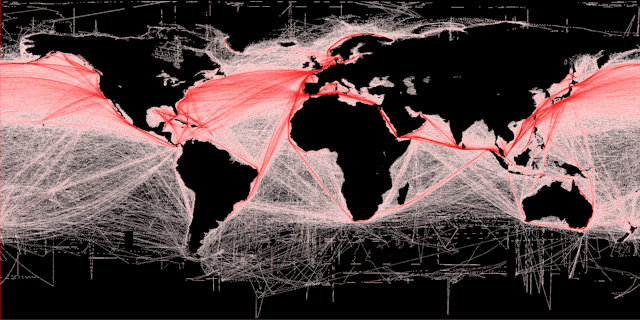The final days of climate negotiations in Paris will hopefully see an agreement to seriously tackle global emissions. But haven’t we been here before? Declarations from previous climate summits promised so much but, in truth, delivered so little.
We have to reduce our dependency on fossil fuels and, 25 years on from Kyoto, the longer we leave it the harder it will get. Paris should be viewed as our last hope.
Part of the problem though is how to get politicians to deliver on their words when they return home and face very imminent and daily domestic challenges. How could we enforce a voluntary agreement?
Here are three proposals that might work:
1) Trade sanctions on nations
There have been lots of international environmental treaties, but only one had effective sanctions: the Montreal Protocol, signed in 1987 to reduce the use of CFC gases which were causing a hole in the ozone layer.
These days, the ozone layer is on the mend. CFCs used in refrigerators or aerosol cans were replaced with HFCs, a group of related gases that don’t harm the ozone (though they still add to the greenhouse effect).
Montreal worked because it enshrined trade sanctions against those countries that did not join and also against members that did not comply with their obligations. Trade sanctions were imposed on all goods which used CFCs in production or released CFCs during consumption.
Of course, using this idea as a blueprint for the enforcement of carbon targets is inherently more difficult. All goods require energy for production and hence release greenhouse gases. There’s no simple switch to low-carbon production. Trade sanctions would have to be imposed on all goods and services that are produced by a country which does not become a member of a climate agreement. A trade war could ensue.
How realistic it would be to impose such sanctions against the US for instance, if it didn’t join a climate agreement? In the case of the Montreal protocol this was much easier as America was in fact an initiator and driving force. This is less clear for Paris.
2) Emissions tied to border tax or foreign aid
Countries who signed up to a Paris climate agreement could impose a tariff on all imports produced in countries with higher greenhouse gas emissions. This is known as a “border tax adjustment”. Non-members could no longer benefit from a kind of eco-dumping at the expense of members.

The agreement could also be linked to development aid, another credible way to get developing countries on board. Last year US$135 billion was spent on development aid, in the form of direct payments, in-kind transfers or technology sharing. Much of this could be linked to performance under a climate agreement.
3) International deposit system
Threats over aid might work against poorer countries but clearly it is much more difficult to discipline industrialised nations. There simply aren’t many credible options for deterring non-compliance. One compelling proposal is that all members contribute to a fund, a kind of deposit scheme, which would be managed by the secretariat of the climate agreement.
As long as countries comply with their obligations, they receive interest payments from their deposit. If they violate the agreement, these interest payments stop and some or all of their deposit is paid out to the complying countries.
This is certainly a credible threat and appeals to national self-interest. The only problem is whether members could be convinced to stump up the money in the first place. After all, the amount must be large enough – tied to national GDP – to be able be to change the behaviour of governments. Economically-speaking, such a system is appealing.
Working with what we have
But the reality is any Paris agreement will be voluntary, without sufficient financial mechanisms in place that would encourage compliance. The onus is on the big, industrialised countries to agree to ambitious pledges, and these targets need to be pegged to per capita emissions. Richer nations have to make a significant contribution to a climate fund in order to help poorer countries cope with the consequences of climate change which will – most likely – be unavoidable whatever happens at Paris.
Finally, putting a proper price on carbon may not be popular with individual people who don’t want to pay more for their food, flights or heating. However collectively it makes a lot of sense. If energy is too cheap we use too much. If carbon-intensive energy is too cheap we have no incentive to develop and deploy renewables. A first (but critical) step towards that would be to stop subsidising dirty energy production.

